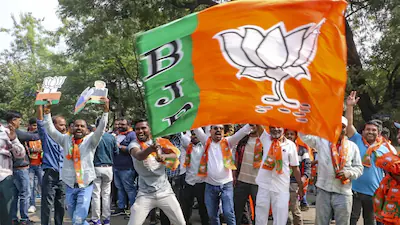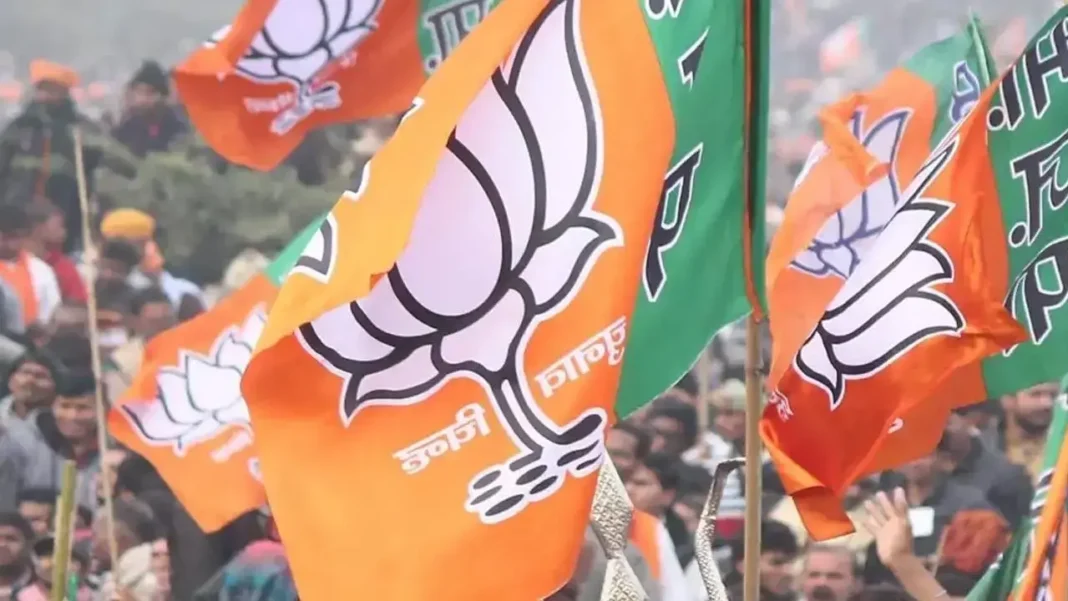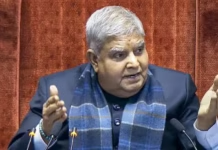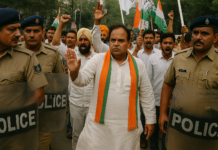
In a significant organizational update, the Bharatiya Janata Party (BJP) has announced the appointment of election officers for state president elections across several major Indian states, including Maharashtra, Uttarakhand, and West Bengal. This decision signals the beginning of an internal reshuffling process within the party, aimed at strengthening its state-level leadership and preparing for future elections. The move comes soon after the BJP’s performance in the 2024 Lok Sabha elections, where while the party emerged as the largest national party, it had to rely on alliance partners to form the government at the Centre.
The announcement of these appointments underlines the BJP’s focus on revamping its organizational machinery, particularly in states where leadership changes are essential to improve party performance and connect better with the grassroots.
Understanding BJP’s Internal Election Process
The BJP, known for its well-oiled organizational structure, follows a democratic internal election system to appoint state-level presidents. As per the party’s constitution, this process involves appointing senior and neutral election officers who supervise the nomination, voting, and result declaration phases of the internal polls. These elections are crucial for the selection of new state unit presidents, who play a pivotal role in the party’s regional strategies.
The process of appointing election officers is not merely a formality. These officers are responsible for conducting the elections with fairness, transparency, and discipline. By following this internal democratic mechanism, the BJP continues to position itself as a cadre-based party with a focus on structured leadership. This process also helps the party identify and elevate committed karyakartas (workers) who have deep-rooted connections with local issues.
Maharashtra: A Key Battle State
In Maharashtra, the appointment of an election officer assumes added importance due to the upcoming assembly elections and the shifting alliances within the state. The BJP, which is currently part of the ruling coalition with Eknath Shinde’s Shiv Sena and Ajit Pawar’s NCP faction, wants to consolidate its position further. The election officer appointed for Maharashtra is expected to oversee a fair and inclusive process to identify a new state president who can lead the party into the 2025 assembly polls with renewed strength.
The political dynamics in Maharashtra have changed drastically in the last few years, and the BJP knows that the new state unit chief will need to be someone who can balance coalition politics while also energizing the BJP’s core support base. This makes the role of the election officer even more vital in selecting the right candidate.
Uttarakhand: Strengthening a BJP Stronghold
In Uttarakhand, the BJP has been in power for consecutive terms, and the party’s performance in the state has been stable. However, with growing expectations from the public and a need for fresh energy and leadership, the party has decided to conduct internal elections for the state president position. The appointed election officer will supervise the process of selecting a leader who can maintain the BJP’s dominance while addressing local governance issues and internal coordination challenges.
Despite its stronghold status, Uttarakhand has witnessed frequent leadership changes, and managing the aspirations of various factions within the party is a constant challenge. The new state president, therefore, will need to work on unity, efficient communication between the government and the organization, and deepening grassroots outreach programs.
West Bengal: A Crucial Political Laboratory
West Bengal remains one of the most challenging states for the BJP. After putting up a strong fight in the 2021 Assembly Elections, the party lost momentum and has since struggled to maintain unity within its ranks. The appointment of an election officer here is a direct attempt by the central leadership to reorganize and re-energize the Bengal unit.
The new president, who will be chosen under the supervision of the election officer, will be entrusted with the task of reviving the party’s grassroots connection, building a strong cadre base, and developing state-specific strategies to take on the ruling Trinamool Congress. The officer’s role becomes even more critical in ensuring that the process does not deepen internal divisions but rather paves the way for collaborative leadership.
Appointments in Other States Reflect National Strategy
Apart from these three major states, the BJP has also named election officers in states like Punjab, Tamil Nadu, Odisha, Kerala, Delhi, and Andhra Pradesh. These appointments are part of a broader strategy to inject new leadership and accountability at the state level across India.
In states like Punjab and Tamil Nadu, where the BJP’s presence is still growing, the party sees an opportunity to build its base from scratch with dynamic leadership. In Delhi and Kerala, the party wants to make inroads by adopting issue-based and localized campaigns, which require a strong, aware, and communicative state president. The election officers in these regions will play a key role in overseeing a smooth selection process and minimizing factional conflicts.
Senior Leaders Trusted with Election Duties
The BJP has ensured that the appointed election officers are seasoned leaders with vast experience in both organizational and electoral politics. These leaders enjoy the trust of the central command and have shown efficiency in past organizational roles. Their primary responsibilities include managing the nominations, resolving disputes, and ensuring the entire process remains transparent and credible.
Unlike some political parties where leadership decisions are dictated from the top, the BJP emphasizes the importance of internal democratic structures. This reliance on a bottom-up approach is one of the reasons why the party has been able to maintain a large, committed, and ideologically aligned cadre.
The Significance of a State President’s Role
The state president of the BJP holds immense power and responsibility. They act as the bridge between the central leadership and the grassroots workers, managing daily organizational tasks and implementing political strategies. From coordinating membership drives and selecting candidates to leading election campaigns and engaging with social and religious communities, the state president’s influence is felt across all layers of the party’s functioning.
In election-bound states, the president also becomes the face of the party’s local campaigns, and their ability to mobilize support and drive public opinion often plays a deciding role in electoral outcomes. The selection of state presidents, therefore, is not just a matter of formality but a strategic decision that can impact the BJP’s electoral fortunes in a major way.
Political Implications and Forward Strategy
The timing of these appointments is highly strategic. With the next round of assembly elections scheduled in states like Maharashtra, West Bengal, Bihar, and Jharkhand in 2025 and 2026, the BJP wants to ensure that its state-level leadership is robust, dynamic, and aligned with the party’s national vision. Through these internal elections, the party also sends a clear message to its cadre and the opposition — that the BJP is always preparing for the next challenge, and no political ground is being taken lightly.
Additionally, this move helps in boosting internal morale, especially after the 2024 Lok Sabha elections where the party faced stiff competition and had to accommodate alliance partners to form a majority. By empowering state units, the BJP is trying to balance national strategies with regional aspirations, something that will be critical going forward.
The BJP’s decision to appoint election officers for the selection of new state presidents in Maharashtra, Uttarakhand, West Bengal, and other key states marks a bold and timely move toward organizational rejuvenation. This is more than a routine internal affair—it’s a calculated political strategy aimed at strengthening the party’s foundation, improving internal democracy, and ensuring that the right leadership is in place to lead regional units through critical electoral battles ahead.
By placing trust in experienced election officers and focusing on transparent internal elections, the BJP once again reinforces its reputation as a party that believes in discipline, structure, and grassroots empowerment. The months ahead will be crucial as the newly elected presidents take charge and begin laying the groundwork for the party’s state-level resurgence. All eyes will be on the leaders chosen through this process, and how they shape the BJP’s performance on both local and national platforms.


































